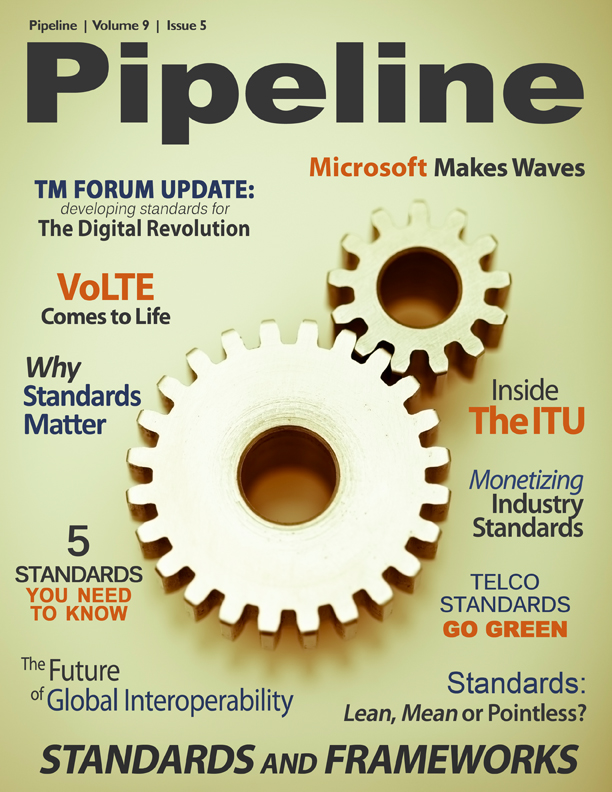Inside the ITU: A Q&A with Malcolm Johnson
ITU fulfills a critical role as the UN-specialized agency for information and communication technology (ICT) in that it serves a global membership of 193 member states and over 700 private-sector entities, academic institutions, civil society and other governmental and nongovernmental organizations. This strong public-private partnership is the strength of ITU; it ensures all interests are included in a transparent and clearly defined process of reaching consensus on the standards needed to meet the requirements of users in both the developed and developing worlds.
Pipeline: What enforcement power does the ITU-T have to ensure standards compliance? Or are the ITU-T standards self-enforcing?
Johnson: Our standards are voluntary: that is why they are called “recommendations.” However, it is possible for a member state to decide to enshrine them in its national legislation.
Pipeline: How have ITU-T standards been deployed or applied, and what problem did they help to solve?
Johnson: If I were to pick one example, it may be that of modems, which gave most people their first taste of what a fully connected world would be. Without globally agreed standards providing interoperability, it could be argued that the development of the Internet would have been much slower.
ITU-T’s Study Group 15 was responsible for those standards and is today still responsible for the transport and access technologies that underpin all ICTs. It standardizes the technical frameworks for global fiber-optic networks and access technologies such as xDSL, which is a dominant broadband technology. Such is the importance of this group’s work that its recent meeting in Geneva attracted well over 300 representatives of governments, businesses and research institutes from 48 countries.
Pipeline: Are there specific industry segments that are particularly active in the growth and development of standards at the moment?
Johnson: Standards are demanded by all segments of the ICT industry; to provide the common platforms needed for young markets to find their feet, or to ensure highly developed segments, remains at the cutting edge of technological progress.
An important standardization question today, with ICT ingrained in the operations of all other industry sectors, is how we will most effectively include vertical-market players in the ICT standardization process.
Innovations such as e-health, e-learning, Intelligent Transport Systems (ITS), mobile money, and smart grid will demand standards developed by the ICT industry in close collaboration with the relevant vertical sector. For example, for the successful standardization of ITS we need the car manufacturing industry; for mobile money we need the banking sector.
We are having some success ...For example, BMW hosted a recent meeting of our Collaboration on Intelligent Transport Systems, Bank of America is contributing to our work on identity management, EDF is working with us on smart-grid technology, and Continua Health Alliance on e-health. But it is clear that we will have to strengthen mechanisms for vertical sectors, ICT organizations and standards bodies to coordinate more effectively.



















